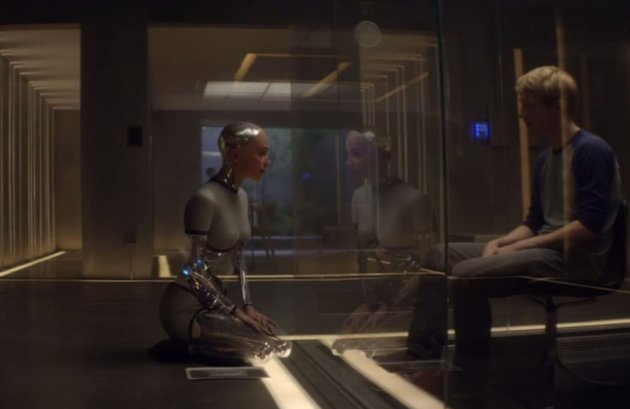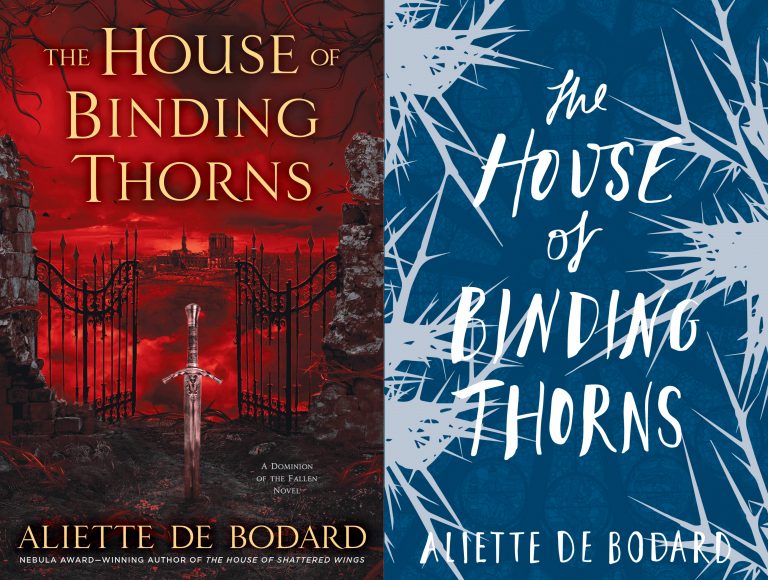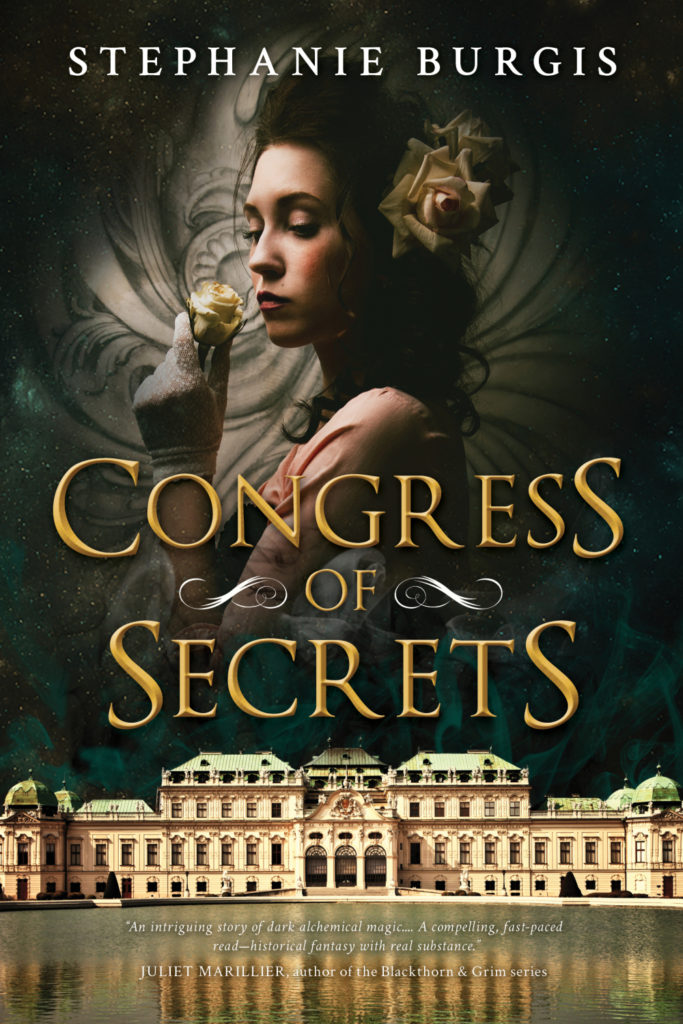The Intersection: AI and Creator-bias

Today’s post isn’t about science fiction exactly, but we’ll file it under “thoughts that inspire science fiction” and vice versa. Ask a professional scientist if observer bias exists, and they’ll say yes. Medical science alone has many examples of what happens when bias is ignored. It affects medical practice in dangerous ways. Until recently, drug testing was almost never conducted on women. The reasoning was that women have “hormone fluctuations,” and the male-dominated medical industry wanted a pure data-baseline. Society believes that male is default for human. So, the establishment assumed that whatever is safe for men is safe for women and never looked back. Of course, the failure in logic here is that if a drug’s effectiveness is adulterated enough by female hormone fluctuations that it alters the end data, how could they have missed that this also meant this interaction could change its efficacy on the patient? Or to put it another way: How could they possibly know whether or not the drugs were, in fact, safe for women if the drugs aren’t tested under conditions with shifting hormones — the very conditions under which the drug was being used? This isn’t the only example.[1] And medicine isn’t the only science to suffer because of unexamined bias. And here is where we begin our discussion of AI.
Book Review: Avengers of the Moon by Allen Steele

It takes a lot of moxie to decide you’re the one to take a character beloved from pulp magazines and anime and update it for a 21st century novel. Allen Steele has already proven that he has that moxie, having given us a novella on “The Death of Captain Future”, but that story wasn’t about Captain Future so much as about a fan of the pulps in which that hero first came to life. Twenty-odd years later, he’s at it again, but this time he’s gone all out to make Captain Future a hero for our times. Did he succeed? If by “succeed” one means creates a perfect pastiche of the hokey and wholesome tales of yore while subtly correcting for modern advances in scientific knowledge and attitudes about the Other, then he more than succeeds. Avengers of the Moon has all the feel of an early 20th century planetary romance, without any of the “mistakes” that let us smile behind our hands when reading the originals he draws on. It’s not set in the “distant future” year of 2015. There are no aliens living in caves on the moon or on the other planets in our solar system.* Weapons and gadgets and space travel are more plausible for modern readers (and cool as heck!). The nom-de-guerre of Captain Future remains but is treated as a childish embarrassment that others gently rib Curt Newton for adopting. Etc.
Guest Post by Aliette de Bodard: Beyond the Cliché Shelf: Making Characters Vibrant and Unexpected

Today instead of a review from me, we have a guest post by Aliette de Bodard. Her second Dominion of the Fallen novel, The House of Binding Thorns, is now out, and you will see a review of it from me here soon. In the meantime, Aliette has some words to say about Characters: I used to struggle a lot with characters. My natural strength is worldbuilding: I can quite happily spend weeks and months reading non-fiction books on anything from the history of food in Vietnam to the role of servants in 19th-Century Paris, and slowly and painstakingly creating a universe from these inspirations. With characters… my earliest ones were correctly created as part of the setting, but I struggled with giving them individuality and personality beyond that. When I created memorable characters they almost always were by accident rather than by design — while the discovery process was wonderful, it was rather annoying to not be able to repeat that when I needed this!
Book Review: The Weight of the World by Tom Toner

The second novel in Tom Toner’s Amaranthine Spectrum sequence, The Weight of the World continues the story of the descendants of humanity across local space 125 centuries into the future with a continued exploration of its range of characters set across an era of change and uncertainty for the immortal masters of the Firmament and their would-be supplanters alike. What The Weight of the World brings for a reader of the original book, The Promise of the Child, is the continued development of the plotlines whose tapestry began in that first book. There is Lycaste, of course, now far from the simple home, the Eden, really, that he had been driven from in the events of the first novel. Here, he continues his perambulating journey, a pawn of forces that seem determined to use him as he simply, still, like Odysseus wants to return home. But duties, promises, responsibilities and the vicissitudes of conflict drive Lycaste forward. Too, other characters met in the first novel show up here. The knight Ghaldezuel, for instance, continues his lonely, rambling quest across the worlds. Sotriis and Jatropha, two of the immortal Amaranthines whose lives seem as fragile as their own world, and others, continue to make their way in this time of tumult.
Book Review: CONGRESS OF SECRETS by Stephanie Burgis

Known for her Regency-era fantasy series for middle-grade readers that began with A Most Improper Magick (published as Kat, Incorrigible in the US), Stephanie Burgis’ debut novel for adults, Masks and Shadows, similarly combined romanticism with the fantastic. Her sophomore novel, released at the end of 2016 by Pyr, continues this formula. Well paced and passionately infused with historical details and characters, Congress of Secrets will appeal to readers who enjoy a touch of magical darkness balancing Austenesque romance and historical intrigue. The story is set in 1814 at the start of the Congress of Vienna, a conference held by European powers to settle pressing geopolitical issues after the initial defeat of Napoleon. Clandestinely among the throngs arriving into the city are two former citizens who have spent years in exile, separated from Vienna and from one another after a traumatic night that ended in flames and escape from the secret police. Karolina Vogl, daughter of a printer who published pamphlets critical of the Holy Roman Emperor, is now a wealthy English widow named Lady Caroline Wyndham. With the passage of time and her new identity, Caroline plans to take advantage of the Congress to locate and rescue her imprisoned father. But Michael Steinhüller, an opportunistic con man who had been her father’s former apprentice, also uses the Congress as an opportunity to re-enter Vienna, posing as one “Prince Kalishnikoff” and looking for a score of a lifetime. Amid the diplomatic aristocracy Caroline and Michael each maneuver towards their goals, trying to avoid discovery. However, the greatest threat to their plans may be a chance, volatile reunion with one another, and reignited emotions of friendship and betrayal in their shared past.
Torture Cinema Poll: April Showers!

We do hope you enjoyed our last Torture Cinema as much as we didn’t. Who am I kidding? WE LOVE GETTING TORTURED! (We laugh so we don’t cry) We’ve got some really good movie picks for you this month! Or is that bad ones? Whatever they are, they’re something.

